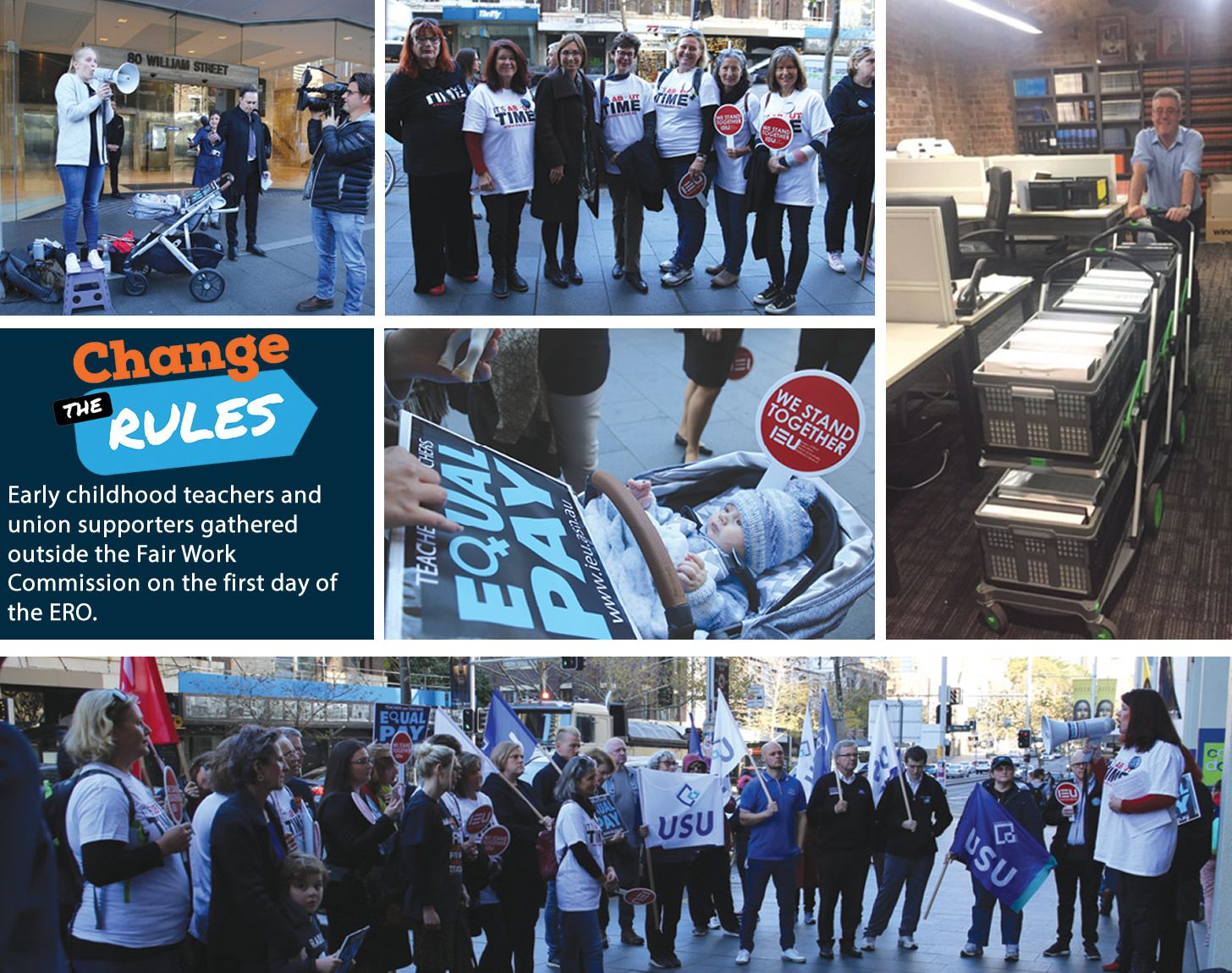IEUA NSW/ACT Branch Industrial Officer Dr Michael Wright reports on the recent developments with the IEUA’s application for an Equal Remuneration Order (ERO) to the Fair Work Commission (FWC).
IEUA is asking the FWC to remedy wages for early childhood teachers. The IEUA has been fighting this campaign on behalf of early childhood teachers since 2013, when it first made the ERO application.
The Union wants to prove that early childhood teachers do work of comparable value to similar professionals, but being mainly female, are underpaid.
In late July, 2018 the FWC commenced hearings, where the IEU’s evidence was presented. Our evidence consisted of the statements of 23 witnesses and tens of thousands of pages.
However on the second day of this process, the FWC Bench made a statement to the parties that it considered “on the basis of the opening submissions received on 26 July 2018 as well as our very preliminary perusal of the evidentiary and other materials filed to date, that there may be an issue as to whether the minimum rates of pay applicable to early childhood teachers in the Educational Services (Teachers) Award 2010 are properly set having regard to the value of the work performed by such teachers”.
Taking the FWC’s statement into consideration, the Union made an application to increase rates in the Educational Services (Teachers) Award 2010 on the basis of increased work value. We have asked for our work value claim to be joined to the ERO claim and for them to be run concurrently in the FWC.
The addition of the work value claim provides the IEU with another opportunity to argue for the pay of early childhood teachers to be fairer and more relevant, regardless of which sector of the industry they are employed in.
But this means we need to provide the FWC with additional evidence. As a consequence, the combined ERO/work value case will take longer than envisaged. The FWC has reserved new hearing dates for the combined case between June and August 2019.
Although this may seem like yet another delay, the Union hopes that being able to put both cases together may increase the ultimate chances of success.



































































































































